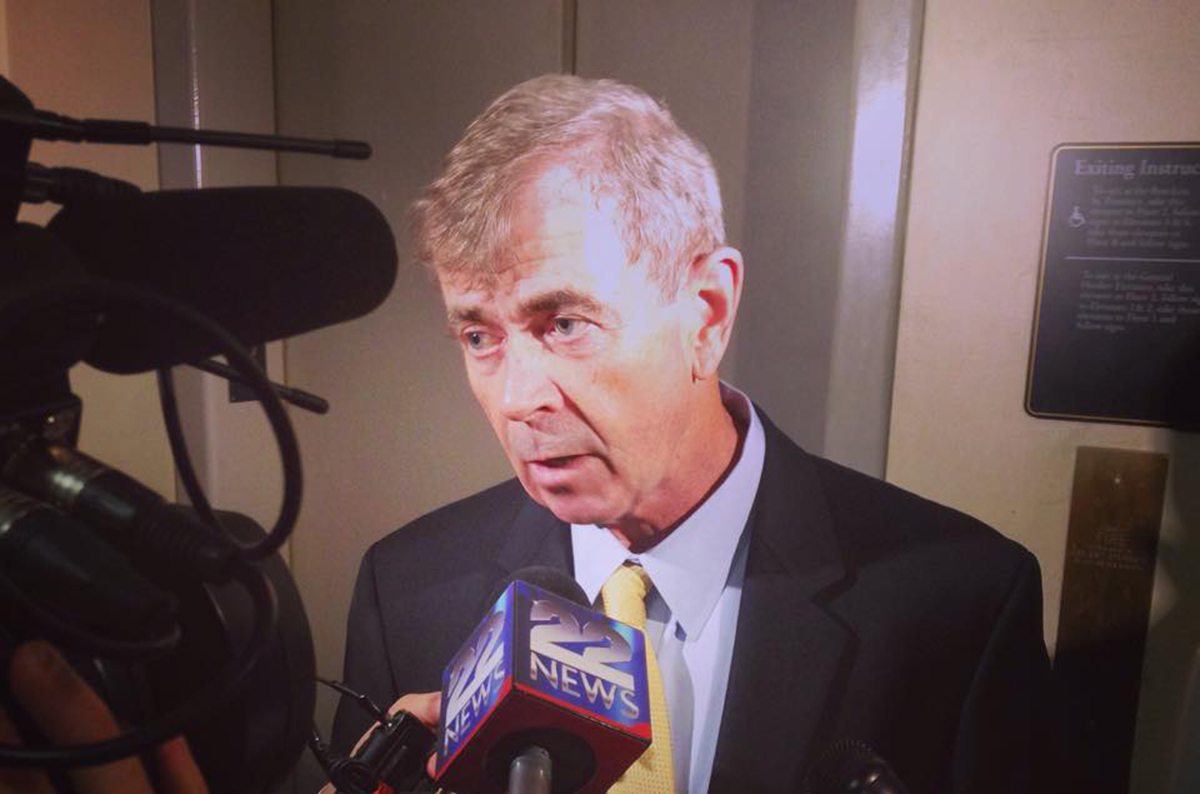Secretary of State William Galvin Moves to Place Public Records Question on 2016 Ballot

Secretary of the Commonwealth William Galvin / Photo by Garrett Quinn
Secretary of State William Galvin is not satisfied with Beacon Hill’s recent progress on public records law reform, so he is taking matters into his own hands.
Galvin filed paperwork with the Attorney General’s office on Tuesday that would place an initiative petition on the 2016 ballot to strengthen the state’s notoriously weak public records law. Prior to the legislature’s full embrace of public records law reform, Galvin said he wanted to see action on the bill sooner rather than later. Galvin went so far as to suggest earlier this year that he would place a question on the ballot if enough progress was not made.
With the legislature in recess for the remainder of the summer, it’s highly unlikely anything will be done on the public records front until September at the earliest.
“Our public records law has often been diluted by cumbersome enforcement procedures, as well as occasional reluctance or even refusal to enforce public records rulings. This initiative is, in the absence of effective legislative action on the matter, designed to remedy that weak element of the law,” said Galvin in a statement.
The petition contains language that is similar to the law currently making its way through the legislature. Galvin wants to make it easier for people who request public records to recover any legal expenses incurred from dealing with public officials acting in “bad faith,” a standard that exists in 47 other states additionally—the ballot question contains language that caps the cost of copying at 15 cents per black-and-white page and 25 cents for color.
One of the frequent barriers to public records is the cost of obtaining them. There’s a long history of public entities in Massachusetts devising exorbitant prices for public records requests. In May, the MBTA told WFXT that they would have to pony up $15,000 for emails sent during the winter storms that crippled the public transportation agency. Olympic opponents are spending more than $3,521.58 to obtain City Hall emails and documents related to the effort to bring the 2024 games to Boston.
Galvin’s initiative petition, as well as the reforms under consideration on Beacon Hill, will not change the status quo that exempts the legislature from the state’s public records law. Galvin has been on the receiving end of scathing criticism from nearly every editorial board in the state for his interpretation and execution of the state’s public records law.
Early reaction to Galvin’s proposal was mixed. Common Cause Executive Director Pam Wilmot panned his efforts in an interview with the State House News Service.
“While Galvin’s petition may be well intended, it won’t remove the many stonewalls now separating Massachusetts citizens from public records,” said Justin Silverman executive director of Five Freedoms.
Galvin has said that if the legislature makes satisfactory progress on reforming the law this fall, he will consider stepping back from the ballot question, but he is not afraid to put his political muscle behind it.
Any question headed for the 2016 ballot needs to clear multiple hurdles. First, a campaign must gather 64,570 signatures by November 28. Then, if everything checks out, they need to gather another 10,792 signatures by July 6.


